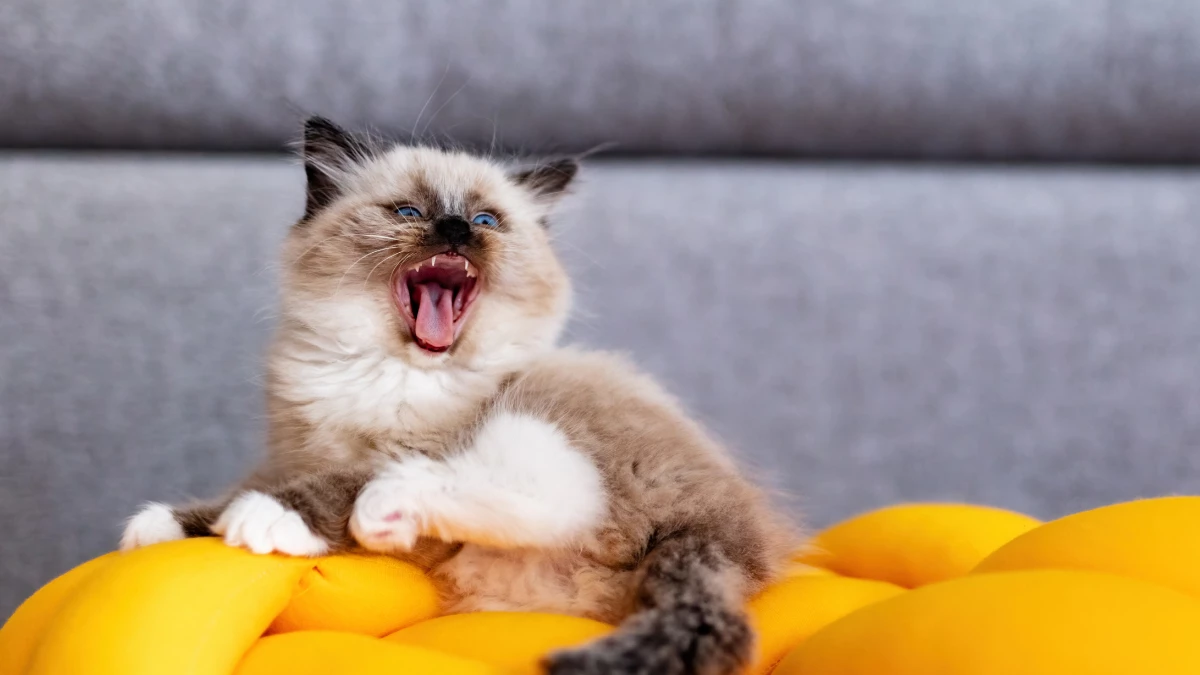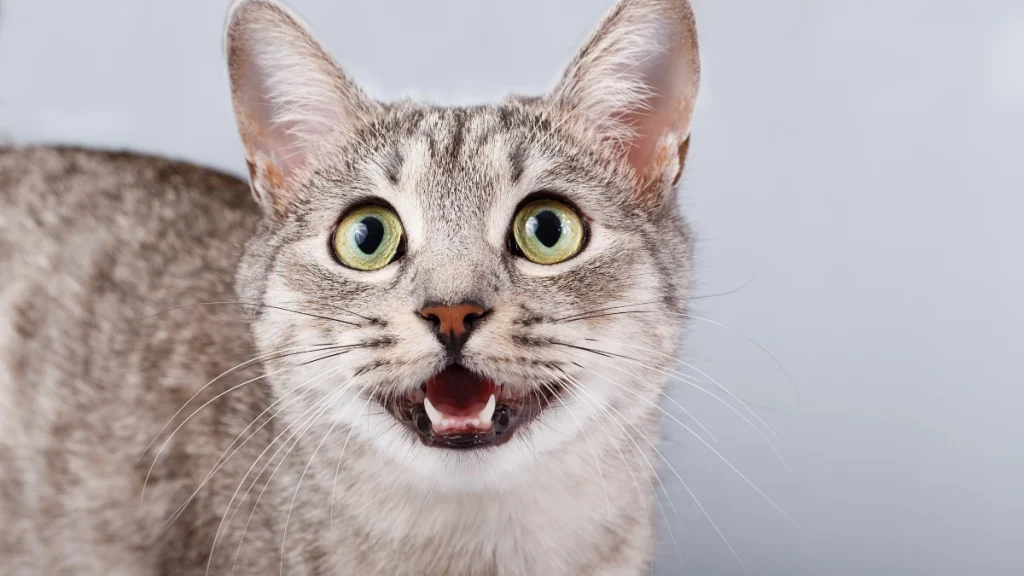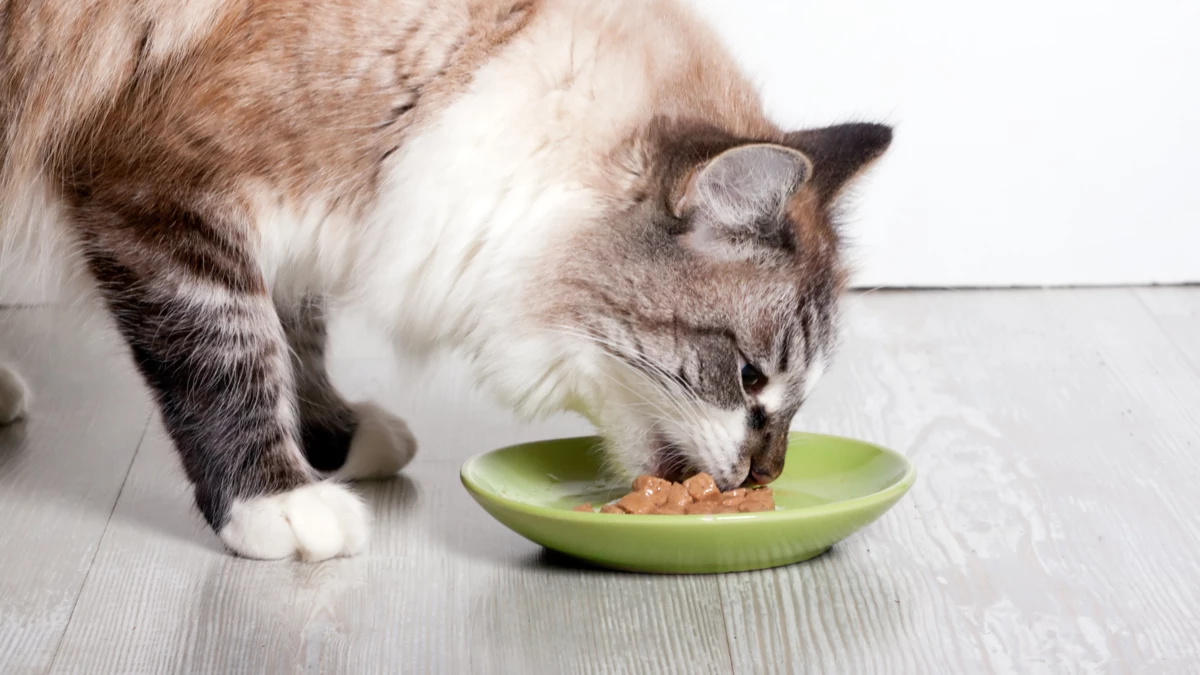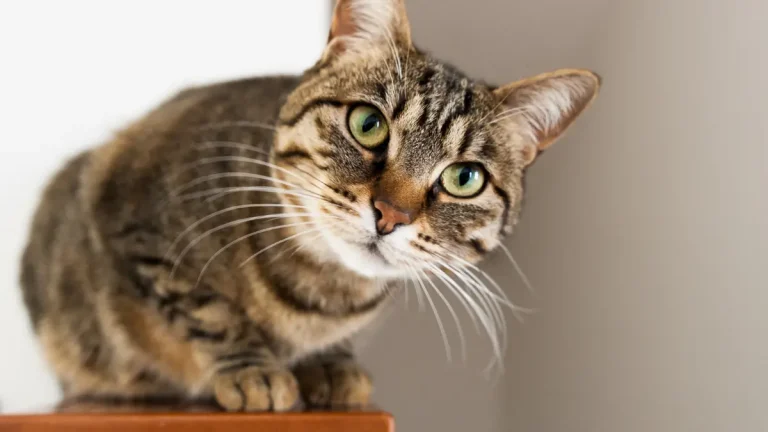why is my cat meowing so much?

Even if it seems like it, the cat’s meow is not normally used to communicate with other cats. Your cat will likely use this call, like many others, to get your attention, whether out of necessity, fear or excitement. Additionally, your cat’s meow will be accompanied by some nonverbal expression , such as a look or a hiss.
why is my cat meowing so much? Sometimes all a cat wants is to get your attention, but other times it may want to show a problem. So knowing the possible causes of your cat’s meowing is essential to finding out what’s happening to him.
What does a cat’s meow mean?
Meowing is a way for cats to communicate with humans. They usually use this sound signal with people, while they communicate with their relatives through non-verbal language.
It is not very clear to people, however, if you look closely at your pet, you can see that meowing is accompanied by certain body movements. The important thing is that cats never meow without a reason. They are too rational to waste time and take meaningless actions.
Why does the cat meow so often?
The first step is a thorough check-up by your vet. Numerous diseases can cause a cat to be hungry, thirsty, or in pain, which can lead to excessive meowing. Cats of all ages can also develop an overactive thyroid or kidney disease , both of which can result in excessive vocalizations.
Gain a deeper appreciation by deciphering feline knead in this insightful article. Explore the emotional and instinctual reasons behind your cat’s rhythmic paw movements, unraveling the mystery behind those comforting kneading sessions. Understand the unique behaviors that make kneading a special aspect of feline communication.
Seeking Attention
Despite what some people think, cats don’t like to be alone very much. Cats often meow to initiate play, pet, or to get you to talk to them . If you want to reduce attention-seeking meows, stop answering when they call you, and see what happens. Only give her attention when she is calm. If he starts meowing again, look or walk away. But don’t ignore your pet . Spend quality time with her every day , playing, grooming and talking with her. A tired pet is a calmer pet. Seeing is believing.
Wants Food
Some cats meow whenever someone enters the kitchen , hoping to beg for something. And many cats become “very vocal” when feeding time approaches. We at DoctorVet will never tire of repeating how important nutrition is, take care of this matter as much as possible. If this is your problem, don’t feed your cat when he cries.
Wait until your pet calms down and then put the food down. The secret to reducing meowing is to not give her treats when she meows. If that doesn’t work, get an automatic feeder that opens at set times. This way the cat will meow at the feeder and not at you.
Greetings Family Members
Many cats meow when their people come home, or even when they simply meet them indoors. It’s a hard habit to break, but look at him like a kitten saying he’s happy to see you.
Loneliness
If your pet spends too many hours a day alone, think about having a sitter come in during the day or find other ways to enrich your pet’s life. Place a bird feeder outside a window that he can look at. Leave out food toys with food in them.
A Stressed Cat
Cats suffering from stress often become more vocal . A new pet or baby, a move or change in the home, an illness, or the loss of a loved one can turn your cat into a talker . Try to find out what is stressing your pet out and help her adjust to the change. If that’s not possible, give your cat extra attention and quiet time to help calm her.
Aging Cats
Cats, just like people, can suffer from a form of mental confusion or cognitive dysfunction as they age. They become disoriented and often cry plaintively for no apparent reason, especially at night. A night light can sometimes help if your cat becomes disoriented at night, and veterinarians can often prescribe medications that help these symptoms.
Cats They Want to Breed
If your cat is not spayed or neutered, you will hear a lot more noise. Females scream when they are in heat and males scream when they smell a female in heat. Both can be very exasperating, and will be difficult to live with. If your pet is neutered or spayed, you will avoid this problem of intensive vocalization completely.

What to do if your cat meows often and loudly?
If it seems to you that your pet has begun to draw attention to itself more often and loudly, you need to find out the reason.
Contact your veterinarian
When you notice a new behavior in your pet, the first thing you need to do is rule out potential health problems. You are unlikely to be able to objectively assess the situation on your own, so consult a veterinarian. Before you ask him the question: “my cat is constantly meowing, what should I do?”, do a little research and find out:
- when this happens – when visiting the toilet, before or after eating, at nightfall;
- how the voice sounds – hoarse, loud, demanding, plaintive;
- Is there a certain place that she highlights with a voice signal, for example, a tray, doors, a corner of the room.
You will need to provide your veterinarian with information about the type of diet you feed your pet, eating habits (for example, insufficient water consumption), and contact with other animals. Collect as much data as possible about the context in which the behavior occurs. They will help the specialist quickly find the cause and, if necessary, prescribe treatment.
What Not To Do?
Don’t ignore it without making sure there are no problems. Even if you don’t want to reward meowing, sometimes cats meow for a good reason: they can’t get to their litter box, they’re trapped in a room, the water bowl is empty.
Check them when they meow to determine if it’s something you can safely ignore or a problem that needs to be corrected immediately.
Don’t punish a cat for meowing. Hitting, shouting, and spraying cats with water rarely works to calm a meowing cat in the long term, but all those actions will make your cat wary.
Do not give up. If your cat is used to getting what he wants from meowing, he will meow more, and louder. He continues to reward quiet behavior and ignore the meowing, and eventually he’ll get the idea.
Types of cat meows
In addition to the usual cat meow, you can find other types of sounds that are not the typical meow:
- Purring :one of the typical sounds, rhythmic and emitted at a low volume, emitted in situations of joy or general relaxation.
- Hissing: usually accompanied by typical non-verbal expressions, arching of the back, flat ears…
- Moaning or screaming: usually longer and louder. They are threatening sounds, to avoid fights with other cats.
- High-pitched cry: This is usually a meow of pain, for example caused by a blow.
Chirping: this meowing is given by excited situations. Usually due to the proximity of a prey, or the frustration of not being able to catch it. When doing so, the jaw trembles in a very characteristic way.

Conclusion
Cats meow for different reasons , and humans don’t always know why. This ability to understand their language can improve with experience, by paying attention to the tone of the meow and observing the context in which the cat meows. You therefore have some keys to understanding what your cat needs when it starts to meow.






